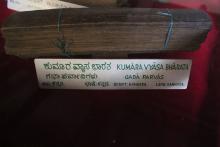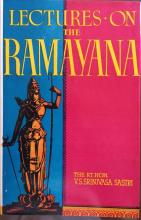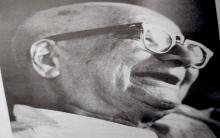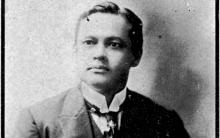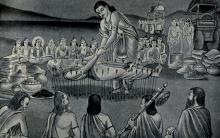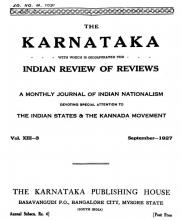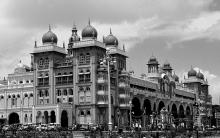Author:gsr
Passion for Rāmāyaṇa
I have mentioned earlier that VS Srinivasa Sastri’s love and devotion for the Rāmāyaṇa was something he inherited from his forefathers. During one of his long stays in Bangalore, his close friend M. Venkataranga Rao, a native of the Andhra region, happened to visit him. One evening, Srinivasa Sastri, his friend Venkataranga Rao and I set out towards the Nandi Hills in a car. I am going to narrate an incident that took place in this short trip –
The foundational pillar of DVG’s fearless attitude was his characteristic transparency and abstinence from seeking anything. At no point in his life did he use his extraordinary political and social influence for personal benefit.
Albion Rajkumar Banerjee was a Bengali by origin. His father, Devavrata Sasipada Banerji, used to be the chief of a branch of the Brahmo Samaj. A. R. Banerjee’s wife was the daughter of the eminent personage Sir Krishna Govinda Gupta. Sir Gupta was a member of the Secretary of State’s Council of India in London; an extremely capable and respected individual.
A R Banerjee was born in England. That’s why the word ‘Albion,’ indicative of the place (Great Britain), was included in his name.
In the activities related to the protection of his people, a king must only take help from people who are courageous, devoted, loyal, respected, hailing from a good family, those with health and strong bodies, good students, those who keep company of noble persons, those with self-respect, those who don’t look upon others with disdain, well-educated, experienced in worldly affairs, those with an eye on their legacy and the hereafter, those who always adhere to dharma, saintly people, and those who are resilient and stable; only such people should be appointed by the king.
“On one occasion Vidvān Anantakṛṣṇa Śāstri (a towering scholar of the league of Navīnam Veṅkaṭeśa Śāstri) began to pose a series of questions to him. Lakṣmīnarasiṃha Śāstri answered them all with great conviction, confidence, and mastery. Anantakṛṣṇa Śāstri was visibly impressed—he patted his back and gave his blessings. This brought unbound happiness to the Jagadguru. Scholars present there exclaimed with joy.”
‘Prāktana-vimarśana-vicakṣaṇa’[1] ‘Mahāmahopādhyāya’[2] ‘Rao Bahadur’[3] R Narasimhacharya was a close relative of S G Narasimhacharya. I remember to have first seen him during the period 1914–15. I was familiar with his name, however, about fourteen to fifteen years earlier. At that time, I had read both the volumes of R Narasimhacharya’s Nīti-mañjarī.
There was no dearth of humorous instances during the Sunday study circle. Besides, it was not in DVG’s nature to waste a single opportunity that afforded a humorous element in it.
On one occasion, DVG said in a circumstantial fashion: “If a person is given a name, it has to be appropriate. Look at me for example. It was entirely fitting that I was named Gundappa [in Kananda, Gunda/Gundu literally means ‘round.’].” He pointed to the slim Sri G.N. Joshi, a friend who was present at the gathering and said, “Will it be appropriate if he was named Gundappa?”
Sardār M Kantaraj Urs was related to the Royal family: he was the Queen Regent’s younger brother and son-in-law. However, this wasn’t—even remotely—the reason why he obtained the post. He rose to power purely because of his experience, competence, and merit. Even if he had belonged to some other caste and had not been related to the royal family, he justly deserved such a position of authority.

